Universal Buckling Apparatus
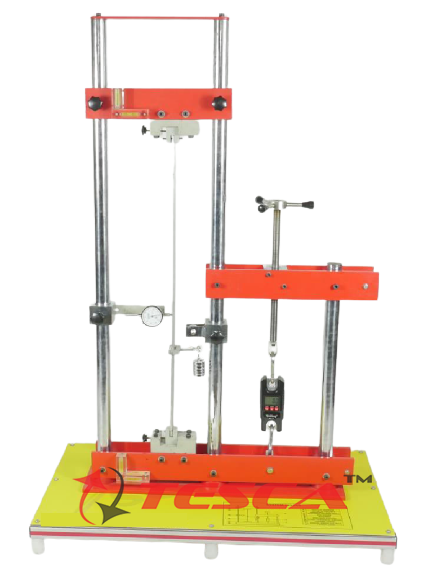
Order Code: 32210
Category: Strength of Materials Lab
Features Buckling is a phenomenon of structural instability in which struts are subjected to compression and on which a disturbing force acts. Buckling, as opposed to simple strength problems such as drawing, pressure, bending and she...
SPECIFICATION
Features
Buckling is a phenomenon of structural instability in which struts are subjected to compression and on which a disturbing force acts.
Buckling, as opposed to simple strength problems such as drawing, pressure, bending and shearing, is primarily a stability problem. Buckling problems number among the best known technical examples in stability theory.
Buckling plays an important role in almost every field of technology. Examples of this are:
- Struts and supports in construction and steel engineering.
- Stop rods for valve actuation and connecting rods in motor construction.
- Piston rods for hydraulic cylinders.
- Lifting spindles in lifting gear.
All parts subjected to pressure are susceptible to buckling.
The main characteristic of the struts which can experiment buckling is the slenderness, that is to say, the struts must be long enough in relation to their thickness in order for the mentioned effect to occur. The Tesca Universal Buckling Unit is a unit designed to demonstrate the concept of buckling for struts, that allow to determine experimentally the relation between the buckling load and the methods of support of the test bars, different thickness and different shapes of the test bars. The Universal Buckling Unit 32210 is a bench-top unit whose frame is made of anodized aluminum profiles and plates and steel elements, on which a bubble level is installed to equilibrate the system.
The unit has been designed to carry out tests with different lengths and different methods of support:
- Both ends pinned.
- Both ends fixed.
- One end fixed and the other pinned.
This unit is designed to work with two types of bars: of circular section and rectangular section. Therefore, the experiments can be carried out according to the different methods of support and different lengths, between 400 mm and 800 mm.
The unit has a regulation nut which, together with a bubble level, will allow to equilibrate the horizontal lower supports, all that after having subjected the system to compression.
It has an accessory to create the instability of the system to study, which consists of a pulley and its support to hang a masses. This accessory can change the disturbing force which acts on a vertical bar subjected to compression.
A digital balance installed in the right side portico will allow to know the load at which the test bar is subjected. To obtain the experimental test bar deflection, with respect to the vertical, a dial gauge is supplied.
Specifications
Bench-top unit with adjustable legs.
Anodized aluminum frame and panels in painted steel. MT 089 unit basically consists of: Two porticoes:
A 1 m. height portico, where the test bars are placed. It is designed to accommodate bars of different height by using two pins. Besides, at the upper and lower parts there are special clamps to subject the bar to the desired methods of support.
A 50 cm. height portico, where the test bar will be subjected to load by turning a hand operated spindle, which will tend to elevate the lower support, so the test bar will be subjected to compression.
Bubble level to equilibrate the system.
Regulation nut which together with a bubble level will allow to equilibrate the horizontal lower supports.
Digital balance of 0-50 kg to measure the bar compression load, with 100 g accuracy.
Weight of 2 kg.
Dial gauge, measurement range: 0-20 mm, precision: 0.01 mm, to check the bar flexion as the test bar is subjected to load. Accessory to create disturbing load over the test bar, which consists of support and pulley.
Set of test bars, composed of:
- 15 bars of rectangular section of different lengths and different methods of support.
- 15 bars of circular section of different lengths and different methods of support.
In order to carry out some of the practices with MUP unit, an “A Type” Set of weights is required. Manuals: This unit is supplied with the following manuals: Required Services, Assembly and Installation, Starting-up, Safety, Maintenance & Practices Manuals.
Experiment
1. Study of Euler buckling theory.
2. Experimental determination of the relation between the buckling load for different thickness and shapes of the test bars.
3. Experimental determination of the relation between the buckling load and the methods of support of the test bars.
4. Determination of the critical load differences for different lengths and different bar sections.
5. Measurement of lateral deflection.
Required Accessories
- 1 “A Type” Set of weights.
- Each “A Type” Set includes: 5 weights of 50gr. (0.11 pounds).
- 4 weights of 10 gr. (0.022 pounds).
- 1 support hook (hunger) of 50 gr. (0.11 pounds).

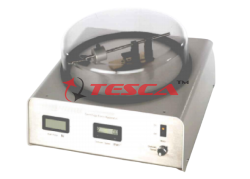
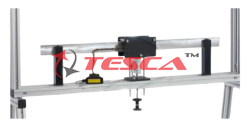
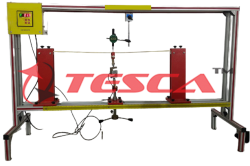
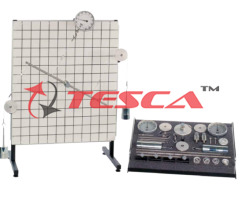
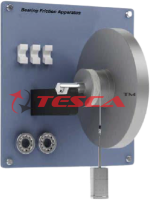
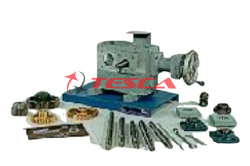
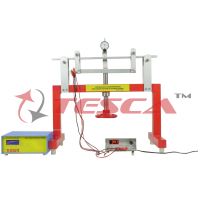
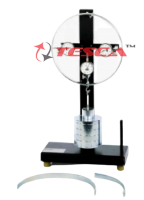
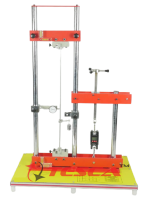

 91-9829132777
91-9829132777